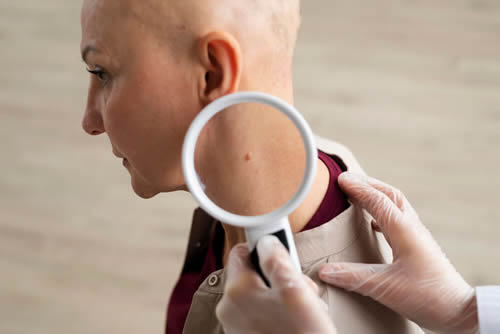If you are used to having regular medical checkups for your general health, teeth or eyes, then you already understand the importance of regular medical care. Your skin should be no different, because skin cancer is the number one type of cancer in the United States. When it is caught early, most skin cancer is treatable. Make annual skin cancer checkups part of your routine by scheduling an appointment with a reputable dermatologist like Dr. Bernard Raskin in Bakersfield.
Purpose
The goal of a skin cancer check is to thoroughly examine your whole body to look for suspicious areas. From head to toe, your physician will closely inspect your body for changes in how your skin normally looks. This may mean new growths, changes in moles, rashes and more. The three primary types of skin cancer are basal cell carcinoma, squamous cell carcinoma, and melanoma. The signs and symptoms of each vary, but Dr. Bernard Raskin knows how to identify each and suggest the best treatment.
Frequency
Everyone should get annual skin cancer checks, but they are especially important for patients with the following histories:
- Personal history of any type of skin cancer
- Close relatives with history of skin cancer
- Skin growths or suspicious areas
- Large number of moles
- History of atypical moles
- History of sunburns or tanning bed use
- Lifestyle with sun exposure
- Organ transplant recipient
Process
Before you go to your appointment, check your own skin first so you are prepared to ask questions about any concerning areas you might see. A typical skin cancer check takes about 20 minutes, with the physician visually looking at your skin and possibly using tools like a bright light or dermatoscope to magnify skin lesions.
Outcomes
If precancerous or cancerous spots are detected, the dermatologist will usually take a photograph for your chart. A biopsy may be performed, which involves taking a small sample of tissue that will be viewed under a microscope. If anything concerning is identified, you will be contacted about further steps. If nothing is detected, you can rest easy that you have made the ideal choice for your health and plan to repeat the process in a year.

